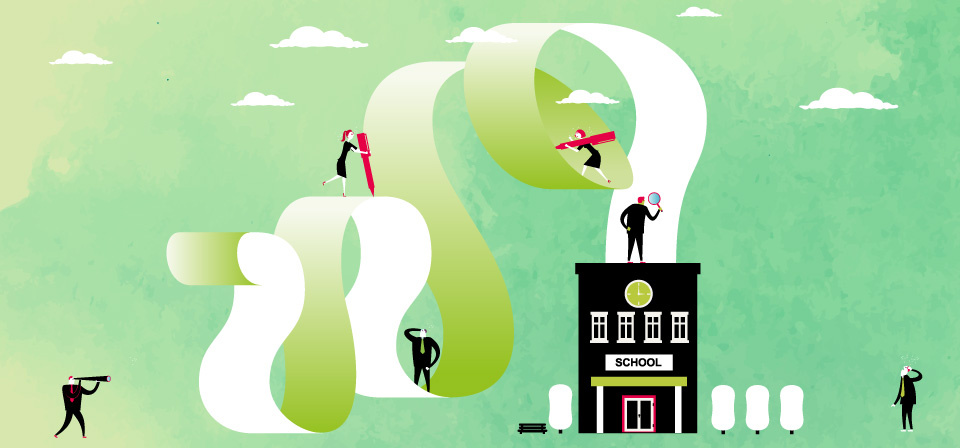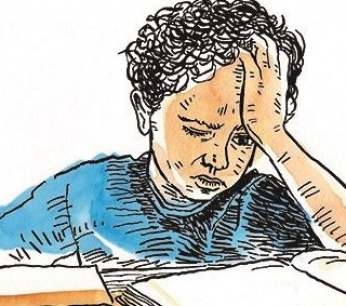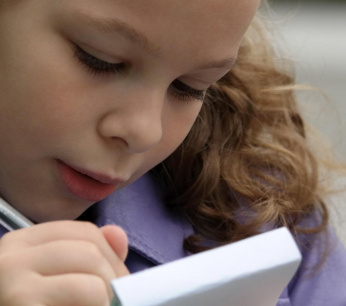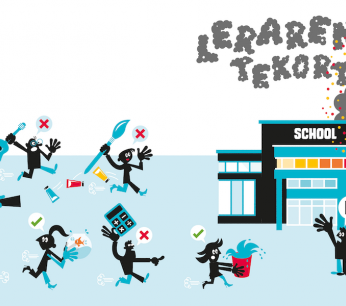Education quality is substandard at too many schools, inspection signals
After warnings about the declining language and arithmetic level of students, the Education Inspectorate has issued a new alarming signal: a worrying number of schools in primary education offer substandard educational quality. Differences between schools are too great, pupils and students are suffering. Politics must take more control.

Type tank
'A large group of students are taught at schools that fall short in terms of educational quality. The primary school student who stays at home one day a week because there is no teacher available or the student in secondary education who is in danger of getting stuck because he lacks the basics in arithmetic: they do not get what they need," writes acting Inspector General Ria Westendorp. in The State of Education 2024, in which the inspectorate takes stock every year.
In a sample of 225 schools and departments in primary, special and secondary education, one in five scored inadequate. A worryingly high percentage, according to the inspectorate. That share will increase even further if the new Basic Skills standard is taken into account in the final assessment. It is not yet clear when that will happen. A large majority of the schools in the sample have received one or more remedial assignments for basic skills. Many recovery orders relate to citizenship.
“A generation of students is not receiving the education they need and deserve. We let that happen, I can't stomach that. We also see the frustration among colleagues in the classroom who cannot provide the education they would like,” responds AOb-chairman Tamar van Gelder. "I hope that the political parties at the formation table will now put education higher on their priority list. How many signals do you need to realize that we are dealing with a major education crisis?"
A generation of students is not receiving the education they need and deserve. I can't stomach that.
The teacher and school leader shortage plays an important role in this. The dire shortages are at the expense of support for students, guidance for novice teachers and improving education in some schools. The dropout of students in higher professional education is also not encouraging, with courses in the education sector topping the list. The differences between institutions are also large. The inspectorate notes that the shortage on the personnel market will continue for the time being.
Van Gelder: “As a society we should never accept the teacher shortage. If we were to do that, we would settle for detours such as the four-day lesson week or a teaching assistant who works independently in the classroom. You have to face reality, but that does not absolve us from the expensive obligation to do everything we can for more qualified teachers.” The AOb wants the inspectorate to monitor unauthorized access and for that information to be shared with the educational field. “So that we can properly map out the consequences of the teacher shortage and where those consequences will hit the hardest.”
Basic skills
The inspectorate examined more schools because of the for years waning basic skills. The inspectorate notes that more and more pupils and students do not have sufficient language, arithmetic and citizenship skills to function in society. This decline was evident among 15-year-olds Pisa poll, late last year. Reading skills have also declined in lower secondary education and primary education.
The picture for arithmetic and mathematics is not much better, according to the report. 'In lower secondary education, the extent to which students master the reference levels decreases in almost all grades and all types of schools.' Many pre-vocational secondary education students (three quarters in basic/intermediate and a quarter in mixed/theoretical learning path) do not yet achieve the fundamental arithmetic level 1F at the end of the second year. They should have this when they leave primary school. In primary education, too few students achieve the target level 1S. Average citizenship knowledge is low compared to comparable countries, with greater differences between schools than in other countries. One in seven students has no knowledge of basic concepts such as 'everyone's equality before the law' or the importance of anonymous voting in elections.
Acquired disadvantages often continue into further education. Secondary schools must spend more time updating students. In secondary vocational education, students still too often do not achieve the intended reference levels.
Differences
The differences between schools are too great, the inspectorate notes. This reinforces the inequality in opportunities that pupils and students receive. The inspectorate also finds it worrying that ten years after the introduction of appropriate education, the quality of additional support is still insufficient in many schools. Some of the regional partnerships still do not have a comprehensive network of facilities for students who need extra support. A third of the partnerships for appropriate education examined in 2022 and 2023 received an insufficient grade.
Some partnerships still do not have adequate facilities for students. I find that extremely worrying
“Some partnerships still do not have the facilities for students in order. I find that extremely worrying,” said Van Gelder: “There are too many and too great differences between schools. Differences in educational quality, whether you have a qualified teacher in the classroom, whether students can count on extra support, at which MBO level you are placed, the chance of dropping out from higher professional education. We have known for years that it makes a huge difference in which neighborhood your school is located or in which region you live.”
Chance
At the same time, there are also many schools where things are going well, the inspectorate notes. Acting Inspector General Westendorp sees an opportunity to turn the tide, she writes in the report: ensure that the bad schools learn from the good examples. At the same time, she calls on politicians to take more control in the decentralized education system. 'Good education becomes everyone's responsibility, but in practice too often no one's. Freedoms become non-binding.'
The inspectorate also points to the increase in incidental funding flows in basic education, rising to almost two billion in 2022. In reality, that amount is even higher, because part of the one-off NPO resources to combat corona backlogs is included in the lump sum. are included and not counted. Some boards rely heavily on temporary revenues that can amount to as much as 30 percent of their funding. The inspectorate believes that the government should aim for sustainable educational improvements with more structural financing.
To get out of this crisis we have to change the track. It is time for more national direction and guidance
Van Gelder refers to the discussion about the management of the education system and the desire to gain more control over it. Minister Mariëlle Paul recently submitted three different scenarios to the House of Representatives for consideration, two of which restrict the great freedom of school boards to a greater or lesser extent. “To quote Merel van Vroonhoven: long toes from school boards are not appropriate here. The basics must be in order, and from there we can work on sufficient quality. We now leave too much to chance, and that is why we have these large differences in equality of opportunity. We must recognize together that we are on the wrong path. To get out of this crisis we have to change the track. It is time for more national direction and guidance, and more structural resources."


